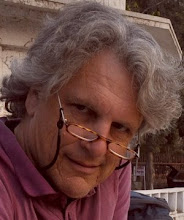1st Corinthians chapter 12 has also figured in the preparatory scripture – this is where the body metaphor is laid out. Our gifts are numerous. All from the same source the scripture tells us. All of value – all needing application. Our gifts are the manifestation of God’s goodness.
I like verse 13 “Whether Jews or Greeks – slaves or free – we were all baptized by one spirit into one body.”
There is a message here for one voice – Jew or Greek or slave or free - of tolerance for all and the desire to include. Every act of inclusion however runs the risk of being co-opted into an act of assimilation. Institutions by their nature seek to become bigger and better. We the church – the body of Christ – must seek to balance the need to be humble with the desire to thrive.
By one spirit – the same spirit – empowers and inspires us all. I feel the “spirit” is ambiguous – I do not see the Trinity as a useful piece of Christina theology. Are we all therefore part of the same ambiguity? The key context is I believe that by being baptized by one spirit we take on that spirit – we are that intangible – we are that longing for justice/peace/happiness. Maybe this also helps with the frustrated sense of responsibility – we can’t necessarily fix it.
Into one body – this entity so vibrant and yet so fragile – such a miracle and so finite. We still have our own bodies – and the need to take account of so many other bodies. We have to co-exist. The one body metaphor is hard because we are so protective of our own bodies – we see that as our life – our imprint on the world.
Therefore .... Can we give our bodies a rest from the responsibility of living AND can we let the body of Christ take over. ohh ... there is a community place for “we as part of the body” but how is each of us a body part of equal worth the rest of the time? By virtue of the gifts that god has given us we have value ... but why “equal” value? Sounds rather politically correct.
Help me out here.
Subscribe to:
Post Comments (Atom)

I don't know "why" equal value - except that this was likely one of the issues Paul was writing to this little church about - one of the bones of contention perhaps was that they gave more value to some people over others - still an issue today ...people power-tripping about their roles or positions on committees etc...
ReplyDeleteCan we give the body rest from living? So is "living" a burden of responsibility for the body? Maybe it is whenthe focus is survival and not possibility.
Interestingly this dovetales into conversation I had this morning with clergy - does the church truly believe it can "rest" in the Spirit - does the body we call church really believe it is sustained by the Spirit, that we are more than the sum of our parts - are we really closet atheists... thinking we need to do it all by ourselves or else choosing to try to control it all?
If we believe God empowers and sustains us, lives in and through us then do we also believe in the possiblility of the impossible? Does that just lay more responsibility on us as a body or burden? How do we "rest" in a faith that anticipates the impossible?